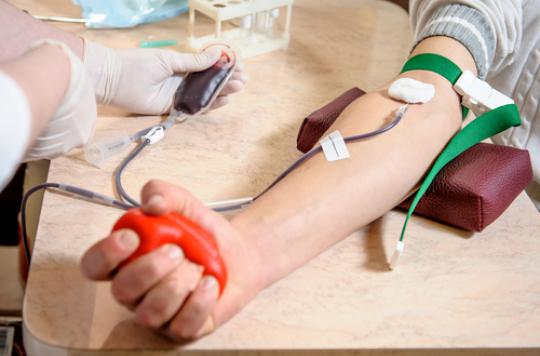Blood donations from females or young people are associated with poorer survival of transfused patients. These results have yet to be confirmed.

While the month of July is in full swing, the French Blood Establishment (EFS) calls on the French on vacation to donate blood. Summer is indeed a traditional break. But every year around the world, 100 million units of blood are collected. A precious gift that saves many lives. The identity of the donor may, however, influence the outcome for the recipient, suggests a study in the JAMA Internal Medicine.
A team from the Ottawa Hospital (Canada) followed for more than two years some 30,500 transfused patients admitted between 2006 and 2013. They were on average 66 years old. In front of them, the data of 80,700 donors were collected. The researchers analyzed the impact of sex and age of the latter on the survival of recipient patients.
Youth and women
The result is quite surprising since receiving a donation from a young or female person reduces the chances of still being alive two years later. In fact, the risk of death is increased by 8% for each unit transfused when the donation comes from a woman and not a man. The proportion is the same if the donor is 17-20 years old compared to a 40-50 year old volunteer.
“These results are astonishing, admits Dr. Dean Fergusson, co-author of the study whose comments are reported by AFP. He emphasizes, however, that the study having consisted in observing a link, no definitive conclusion should be drawn. “We need to do more research to confirm these observations and try to find possible biological mechanisms”, adds Dr. Michaël Chassé, Laval University (Quebec).
.

















